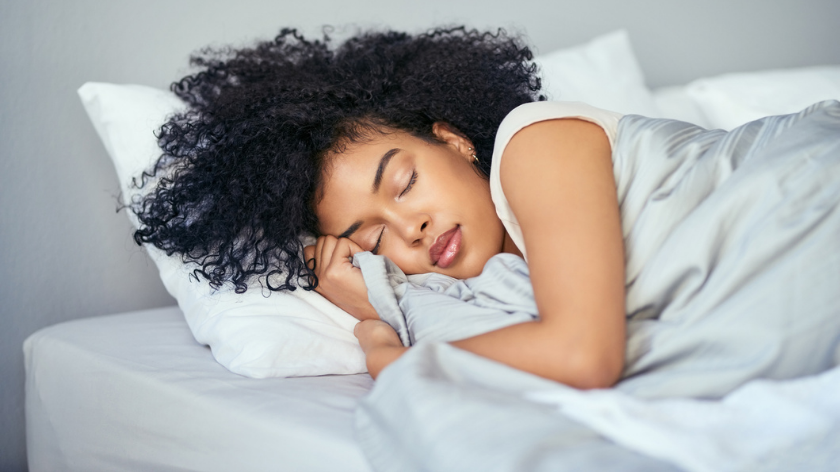The National Sleep Foundation recommends that most healthy adults get between 7 and 9 hours of sleep per night, but many of us struggle to do so. Let’s dive under the covers to take a closer look at our sleep habits to examine how we can achieve optimal ZZZ’s.
When we talk about sleep, it’s not just the quantity of sleep that’s important – it’s the combination of quantity and quality that makes up optimal sleep. Achieving optimal sleep is essential for our health and our productivity, as sleep allows the body to rest and the brain to recharge. The World Health Organization states that “sleep is a basic human need and is essential for good health, good quality of life and performing well during the day.” Poor sleep is associated with increased risk for chronic conditions, such as obesity, diabetes, high blood pressure, coronary heart disease and stroke, as well as all-cause mortality. Poor sleep is also associated with mental health issues, such as depression, anxiety disorders, and attention deficit disorders. Poor sleep impairs cognitive performance and judgment, and sleep-deprived workers in the U.S. contribute to a loss of about 1.23 million working days due to insufficient sleep. Our own data have shown that Vitality members who are top performers at work get the recommended amount of sleep. Further, Vitality members report lower stress levels when getting the recommended amount of sleep but higher stress levels when fewer hours of sleep are achieved.
So, how can we practice proper sleep hygiene to get better sleep and protect against the negative health and productivity outcomes associated with poor sleep?
Turn out the lights: Light can disrupt one’s circadian rhythm (internal clock) and can affect sleep quality. Research has shown that even dim light, like the light from a city street coming through your window, can impact sleep quality and quantity. Turn down the lights as part of your nighttime routine, and make sure your bedroom is as dark as possible.
Set the stage: The sleep environment affects sleep. Keep your bedroom organized, quiet and cool. Temperatures between 60-67 degrees Fahrenheit are ideal for promoting quality sleep.
Put devices to sleep: Remove electronic devices such as TVs, computers and smartphones from the bedroom. While this is likely a tough habit to break for many of us, including the 37% of Vitality members who report using screens as part of their bedtime routine, try to limit screen time as you’re winding down before bed. The mindless scrolling can wait!
Decaffeinate: Caffeine is a stimulant that stays in your body for up to 6 hours after consumption, so that afternoon cup of coffee is actually hurting your sleep. Limit your caffeine intake and focus on building better sleep habits – if you’re well-rested, you may not need that cup of coffee!
Sober slumber: While drinking alcohol may initially help you fall asleep, it actually can lead to more disturbed sleep and leave you feeling groggy the next day. It is best to have alcohol 2-4 hours before bedtime to allow the body time to digest/metabolize it and then have time to easily get into sleep mode.
Watch what you eat: Eating habits can impact your sleep – especially if you’ve just consumed a heavy meal or spicy or high-fat foods for dinner. The body needs time to digest, and these foods often trigger heartburn, which makes it difficult and uncomfortable to fall asleep.
Exercise: Exercise helps to tire you out and regulates circadian rhythms. Being physically active can improve total sleep time, improve sleep quality, and shorten the amount of time it takes to fall asleep. Vitality’s own research in partnership with RAND Europe found that individuals who meet the recommended exercise guidelines exhibit significantly better sleep quality than those who are less active.
Consistency is key: Going to bed and waking up at the same time every day has been shown to lead to better sleep quality. Do your best to have both a consistent bedtime and waketime – on the weekdays and on the weekends.
While getting optimal sleep is a great goal to strive for, there’s also something to be said for staying up a little bit past your bedtime to enjoy a family movie night or finish the last chapter in a great book! So if your plans keep you up past your bedtime one night – don’t stress…it’s bad for your sleep!








